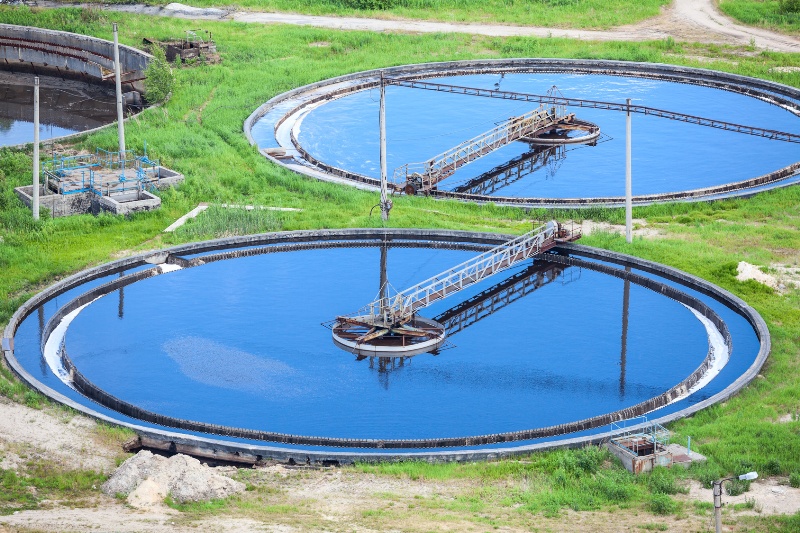The WG Reuse has held its first meeting after the board meeting of the 24th of January 2022

Attendant: Sebastian Shifris (Natfim), Damir Cizmek (Inaqua), Moshi Berenstein (Netafim), Sophie Gendre (Arvalis), Manuel Marti (Hunter), Bruno Molle (INRAE-EIA). Since, a new candidate applied from Azud, Ignacio Diez Concha that contributed to the present minutes.
After an introduction, each attendant presented his background, experience and expectations from the WG, in short:
- Sebastian Schifris, Netafim, chemical engineer, specialized in lab tests on water quality, to draw analysis and treatment required for drip irrigation systems durability, lot of water analysis from various place in the world to understand risk of failure of drip irrigation systems, lots of experimental tests with drippers, fertilizers, filters, focus on finding solutions to maintain the systems;
- Damir Cizmek, Inaqua, water engineer, in Croatia, several project with different source of water, including reclaimed, such request are increasing and not yet developed as they could be. Many attempt but the authorities are not opened and no emblematic projects yet. Education opportunity are seldom, questions raised in this part of Europe are different from other more aware countries;
- Moshi Berenstein, Netafim (since 14 years), interest on drip irrigation and reuse, in Europe different levels of development, a lot of experience to gain from Israel, how to better share experience?
- Sophie Gendre, Arvalis, RD&I institute: agronomist, water management at plot level, focus on cash crops, no experience on reuse, but need to increase understanding as farmers investigate this question more and more frequently;
- Manuel Marti, Hunter, agricultural engineer, since 27 years, numerous Reuse projects in golf course, as it is mandatory to reuse wastewater in Spain, irrigation in cities raise the same concerns;
- Bruno Molle, associated researcher to INRAE, PhD in Agronomy, specialized in technology and practices related to irrigation, in the view of optimizing efficiency of water use. Focus on open field agriculture but more recently on urban agriculture using source separated domestic effluent.
Experience and expectations of the attendees:
- Manuel Marti, mainly involved in golf courses irrigation, adapting technology options to the water quality, depending on its origin and the type of plant watered (filtration, complementary treatment for pathogens removal or micropollutants=MP). Lots of problems related to the management of Nitrogen. Analysis are provided by public or private labs, most of quality parameters are regulated nationally and yet at European level. Standardization of minimum design criterion, management and maintenance practices, are good to analyze before a project, described in6 ISO docs ISO 16075-1 to 6 (see appendix). He is consulted for the last step of the project construction: design and installation, anyway he may suggest some additional refining tertiary treatment depending on the declared water quality, but the responsibility of treatment is upstream. Internal project analyzes tools are used and involved in close cooperation with water lab;
- Moshi Berenstein, downstream position prevents to act on upstream processes which is not end user responsibility, requires to cope with the situation and be sure the user will use the WW safely;
- Sebastian: in Israel where the notion of barrier to contamination/pollution is regulated the designer will receive secondary or tertiairy treated WW, he has to adapt final treatment (at plot inlet) to the intended more restrictive use. Quality is verified by independent lab periodically, and more frequently by farmers (his responsibility). Recently a concern arises with pharmaceutical pollutants and microplastics. The filtration will focus on the protection of the irrigation system, a maintenance adapted to the situation is essential;
- Sophie: here as observer, as farmers close to urban dwellings are progressively asking for such alternative;
- Damir: he sees a lot of regulation and directives at EU level, but eastern European countries are lacking skills, experience and expert consultant to support the construction of projects. Local administration is consequently very reluctant to even speak about this solution, with a lot of preconception considering it is not sustainable on the long term. This despite national research labs are involved in WWReuse research programs. The consequence: golf courses irrigated with potable water, use of brackish water close to the sea, may induce salt intrusion and degradation of coastal aquifers.
- Bruno: possible input from research project that develop numerous tools with a practical application perspective, the organization of a forum of the 11th of Marsh to introduce the tool Poseidon to analyze the feasibility of a project is an example.
How EIA could help develop awareness, skills, and technical support ?
- Many members (and non of course) don’t have any basic references to begin;
- Consultant like Ecofilae could be of value to support the required multidisciplinary approach in a participative manner;
- EIA could help figure out the process of project construction (water availability and quality, regulation, processing, distribution system, monitoring and maintenance). The collection of ISO-16075 standards could be the ref to elaborate and adapt (to EU rules) dedicated guidelines;
- What could be done practically to build a Reuse communities in EIA:
- Organizing WWReuse return of experience presentation from members;
- Collection of data from Europe under the regulation that will apply in 2023;
- Propose a guideline of project analyzes or decision support tools (e.g. Poseidon DSS that will be presented at the next forum) to identify the existing potential (technique, resources, and further skills, largely inspired from ISO) and further its operation and maintenance;
- Start with basic education programs, investigate political support, then know-how sharing between members;
- Show to municipalities that it is possible, may be plan study tours on emblematic projects;
Appendix: ISO-16075-Guidelines for treated wastewater use for irrigation
- Part 1: The Basis of a Reuse Project for Irrigation
- Part 2: Development of the project
- Part 3: Components of a reuse project for irrigation
- Part 4: Monitoring
- Part 5: Treated wastewater disinfection and equivalent treatments
- Part 6: Fertilization
View more